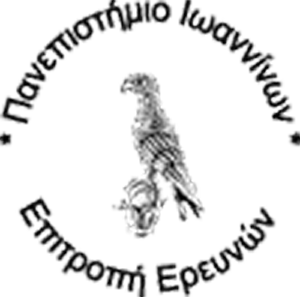ECSEL is a partnership between the private and the public sectors for advancing the state-of-the art in electronic components and systems.
The ECSEL Joint Undertaking is established within the meaning of Article 187 of the Treaty on the Functioning of the European Union for the implementation of the Joint Technology Initiative on 'Electronic Components and Systems for European Leadership' for a period up to 31 December 2024.
Two calls for proposals are open:
1.ECSEL-2014-1 RESEARCH AND INNOVATION ACTIONS
Description: Action primarily consisting of activities aiming to establish new knowledge and/or to explore the feasibility of a new or improved technology, product, process, service or solution. For this purpose they may include basic and applied research, technology development and integration, testing and validation on a small-scale prototype in a laboratory or simulated environment. The activities have their main trust in the TRL2-5
2.ECSEL-2014-2 INNOVATION ACTIONS
Description: Action primarily consisting of activities directly aiming at producing plans and arrangements or designs for new, altered or improved products, processes or services. For this purpose they may include prototyping, testing, demonstrating, piloting, large-scale product validation and market replication. A 'demonstration or pilot' aims to validate the technical and economic viability of a new or improved technology, product, process, service or solution in an operational (or near to operational) environment, whether industrial or otherwise, involving where appropriate a larger scale prototype or demonstrator. A 'market replication' aims to support the first application/deployment in the market of an innovation that has already been demonstrated but not yet applied/deployed in the market due to market failures/barriers to uptake. 'Market replication' does not cover multiple applications in the market of an innovation 4 that has already been applied successfully once in the market. 'First' means new at least to Europe or new at least to the application sector in question. Often such projects involve a validation of technical and economic performance at system level in real life operating conditions provided by the market. The activities have their main trust in the TRL4-8.
TRL explanation comments are available at:http://ec.europa.eu/research/participants/data/ref/h2020/wp/2014_2015/annexes/h2020-wp1415-annex-g-trl_en.pdf
For the submission of the proposals at least three legal entities are required. Each of the three shall be established in a different Member State or associated country. All three legal entities shall be independent of each other.
The EU financial Contribution is up to 50% for Universities. Each country applies different co-financing rules. Greece has not announced yet the rules for participation. (Any new information on the subject will be provided to you).
The following Chapters and Sub-chapters are open for applications for both calls:
a. Key Applications
Smart mobility (a)Resource-efficient transport, b)Less congestion, more safety c) Next generation vehicle)
Smart society (Securing critical community assets, b) Trusted components and systems c) Next generation digital lifestyle)
Smart energy (a) Sustainable energy generation and conversion b) Reducing energy consumption Open c) Efficient community energy management)
Smart health (a)Home care and well-being b) Hospital and heuristic care c) Food processing and safety)
Smart manufacturing (a) Sustainable and integrated manufacturing b) Semiconductor manufacturing)
b. Essential technologies
Process technologies (a)More Moore b) More than Moore)
Design technologies (a) Yield, Robustness and Reliability b) Managing complexity and diversity, including safety and security c) Model-based engineering and virtual engineering)
Cyber-physical systems (a)Architectures b) Autonomy and cooperation c) Platforms - computing architecture and energy management)
Smart systems integration (a)Building blocks, controls and interfaces of smart systems b)Integration methods enabling smart functionality, automation and reliable operation in harsh and complex environments c) Interfaces for the safe, secure and efficient transfer of data and energy)
More Information available at:
